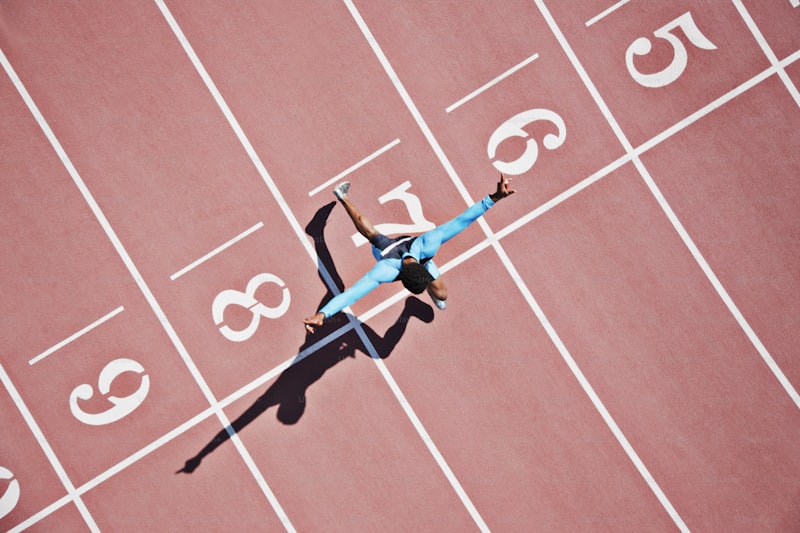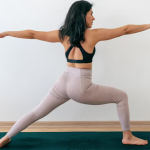Last month the movie mogul Harvey Weinstein, one of the most powerful figures in Hollywood, was unmasked in the media as an alleged sexual predator. As the weeks have gone by more and more women have come forward with countless allegations of sexual harassment and abuse.
In response to these revelations, figures in positions of power across the world, and in all industries are beginning to come under investigation, as women and victims are finding the courage to come forwards, rallying on social media under the #MeToo hashtag, now shared more than 1.7 million times in over 85 countries.
The latest in the list is the renowned actor Kevin Spacey, who is currently facing 20 allegations of inappropriate behaviour with young men during his 11-year tenure as artistic director of the Old Vic theatre in South London.
What has this got to do with yoga?
The truth is that power preys on vulnerability, and while someone is in a position of power, people are ashamed, afraid and discouraged to speak out against them.
The Old Vic admitted that the actor Kevin Spacey’s star power, which the theatre described as a “cult of personality”, contributed to the fact that these allegations are only just coming to light. This can occur in any organisation or situation where someone in a position of power feels that they can take whatever they want with impunity, including the yoga industry.
Take the case against the controversial celebrity yogi Bikram Choudhury. In the early 2010s he was in charge of a global empire of bikram yoga studios. Fast forward 7 years and he’s now a persona non grata and there are six separate suits against him, ranging from sexual harassment to rape. In response to this scandal, Bikram yoga studios the world over are distancing themselves from their former founder and guru.
According to his ex-lawyer, Micki Jaffa-Bodden, he acted like he was untouchable and could behave however he liked, and (according to an article in the Guardian) “told me he was a god who could do whatever he wanted and that I was ‘stupid and too westernised’.”
Thanks to the American legal system, Choudhury is no longer a ‘god’ who can do whatever he wants, but his story acts as a warning for all those in the yoga world.
What changed?
Weinstein, Choudhury and Spacey, to name but a few, have been outed by a tsunami of honesty on social media.
The ‘Me Too’ campaign was originally started ten years ago by American activist Tarana Burke. She tells a heartbreaking story of when she felt she let down a young girl in her care, who opened up to her about horrific abuse, and Burke, unable to respond, sent her to a colleague. After that she realised that she needed to find a way to express solidarity with other victims of rape and sexual assault. The phrase was turned into the hashtag #MeToo by actor Alyssa Milano, who has been the most vocal in her anger against Weinstein, and it has now become a rallying cry to other victims to encourage them to come forward and share their stories and bring awareness to the fact that this is not an isolated case, but a global issue.
Among those people brave enough to go public with their ordeals were many Yoga Instructors including Kino MacGregor, Jessamyn Stanley and Seane Corn. Ashtanga teacher Kino shared her story on her facebook page:
“I was 12. He was my music teacher and he let his hand roll down my breasts as he passed the instrument over to me during my weekly lesson. He was in his 30s. I said nothing bc I thought it was ‘cool’ that my teacher liked me. He was married and three times my age with kids of his own. Sick.”
Jessamyn Stanley tweeted simply:
“Me too. And the fact that I don’t enjoy admitting it probably says way more than anything else. Solidarity is powerful – I feel less alone today.”
It is only through adding our voices together that we can make a loud enough voice to counter the voices and desires of those in positions of power.
How can we heal collectively?
B.K.S. Iyengar, one of the most famous yoga teachers in the world, was faithful to his long-suffering wife Ramammani, and credited his magnificently bushy eyebrows and forbidding manner with keeping admirers at bay. But he wasn’t immune to temptation. In his book Light on Life he writes about lust:
Sexuality is natural and sacred, as is all the natural world. It is the way we use, channel, and direct it that makes the difference between the sacred and the profane.
It’s important to remember that, used in the right way, sex is a force for good. We can ‘use, channel, and direct’ our sexuality to bring us happiness, keep our relationships strong and healthy, and contribute to our creative energy.
But sexuality can also be a powerful tool used to destroy, hurt and take advantage of others.
B.K.S. Iyengar again:
But what has ego done to procreation, to the harmonious union of complementary opposites? It has twisted it into an act of egoic self-affirmation. Lust is self-validation through consumption. Control through the exercise of power.
This is a crystal clear analysis of sexual predators. They are treating other people as just another commodity to be consumed, to be used and discarded once they have satisfied their desires. Like big babies who have never been told that ‘No’ means ‘No’.
Through speaking out, we need to loudly and definitely say ‘No’. No one should have the right to take what they want from anyone.
Yoga and physical adjustments
The lessons of these multiple scandals should not be lost, and should be filtered down to each and every one of us. One of the first things I was taught in teacher training was to respect physical adjustments, and not to wade in touching people left, right and centre.
It’s easy to forget this, as when teaching, you are not seeing bodies as objects of desire, but the line and shape of the body in the pose. It is natural to show the student where and how to move by showing them on their body.
But it is crucial that there is a line drawn, that people’s bodies are respected and that there is a distinction made between physical adjustments and invading people’s space.
Those that might have suffered from sexual abuse in the past may be sensitive to being touched at all, which is why, when dealing with a new student, it is always worth quietly asking ‘Is it ok if I adjust your body?’ first.
If they say ‘no’, then as yoga teachers we MUST respect that.
Yoga and being in a position of power
As a yoga teacher, we are in a position of power over our students. Granted, not very much power compared to some, but, it is still a responsibility.
We are being observed and placed on a pedastal (hopefully) by our students and it is up to us to respect that position of power by never abusing the trust that our students place in us.
According to the yogic principle of ‘Saucha‘ (purity), we must be clean in our thoughts and actions, ensuring that our yoga practice is not just skin deep.
We must not forget the lessons of #MeToo.













